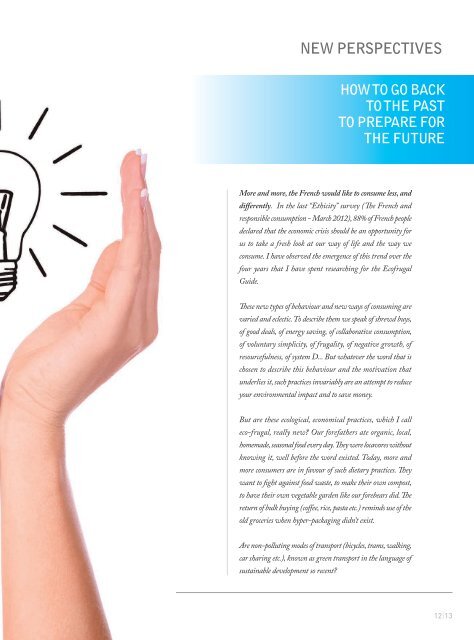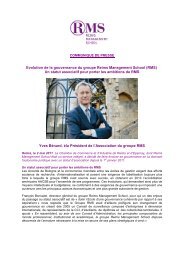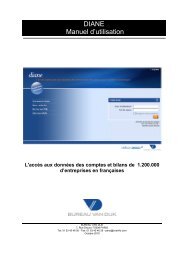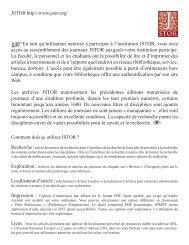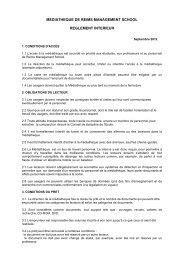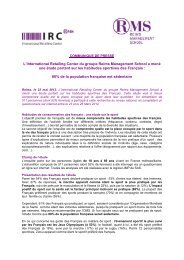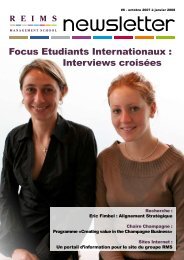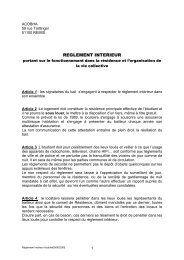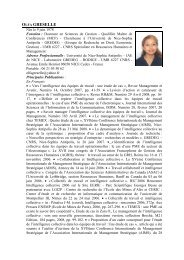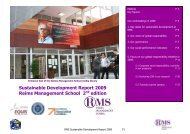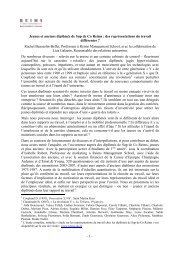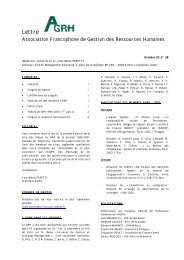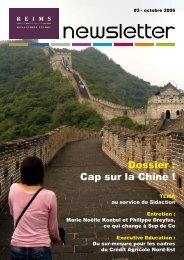tÉLÉCHARGEZ ICI ! le dernier numéro du magazine - Reims ...
tÉLÉCHARGEZ ICI ! le dernier numéro du magazine - Reims ...
tÉLÉCHARGEZ ICI ! le dernier numéro du magazine - Reims ...
You also want an ePaper? Increase the reach of your titles
YUMPU automatically turns print PDFs into web optimized ePapers that Google loves.
More and more, the French would like to consume <strong>le</strong>ss, and<br />
differently. In the last “Ethicity” survey (The French and<br />
responsib<strong>le</strong> consumption - March 2012), 88% of French peop<strong>le</strong><br />
declared that the economic crisis should be an opportunity for<br />
us to take a fresh look at our way of life and the way we<br />
consume. I have observed the emergence of this trend over the<br />
four years that I have spent researching for the Ecofrugal<br />
Guide.<br />
NEW PERSPECTIVES<br />
These new types of behaviour and new ways of consuming are<br />
varied and ec<strong>le</strong>ctic. To describe them we speak of shrewd buys,<br />
of good deals, of energy saving, of collaborative consumption,<br />
of voluntary simplicity, of frugality, of negative growth, of<br />
resourcefulness, of system D... But whatever the word that is<br />
chosen to describe this behaviour and the motivation that<br />
underlies it, such practices invariably are an attempt to re<strong>du</strong>ce<br />
your environmental impact and to save money.<br />
HOW TO GO BACK<br />
TO THE PAST<br />
TO PREPARE FOR<br />
THE FUTURE<br />
But are these ecological, economical practices, which I call<br />
eco-frugal, really new? Our forefathers ate organic, local,<br />
homemade, seasonal food every day. They were locavores without<br />
knowing it, well before the word existed. Today, more and<br />
more consumers are in favour of such dietary practices. They<br />
want to fight against food waste, to make their own compost,<br />
to have their own vegetab<strong>le</strong> garden like our forebears did. The<br />
return of bulk buying (coffee, rice, pasta etc.) reminds use of the<br />
old groceries when hyper-packaging didn’t exist.<br />
Are non-polluting modes of transport (bicyc<strong>le</strong>s, trams, walking,<br />
car sharing etc.), known as green transport in the language of<br />
sustainab<strong>le</strong> development so recent?<br />
12|13


